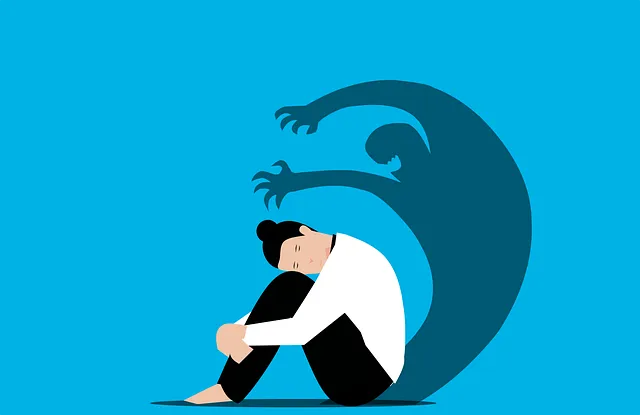Kaiser Permanente's behavioral health providers in Greenwood Village utilize the RFM (Resilience, Flexibility, and Mastery) model to boost client well-being. This approach helps individuals identify internal strengths and external resources for stress management, fostering emotional intelligence and preventing burnout in behavioral health. Through techniques like mindfulness meditation, journaling prompts, and group therapy, they empower patients with effective coping mechanisms, improving their ability to handle challenges and promote mental wellness. The holistic RFM strategies, combined with community engagement, have shown success in reducing anxiety, burnout, and mood disorders, emphasizing the positive impact on Greenwood Village residents' overall emotional well-being.
Resilience is a powerful tool in navigating life’s challenges, especially for individuals dealing with mental health issues. This article explores RFM (Resilience, Flexibility, and Mastery), an innovative approach to behavioral health, inspired by best practices from Kaiser Permanente. We delve into the benefits of resilience-building exercises, particularly in Greenwood Village, where local providers have implemented these strategies successfully. By understanding RFM, healthcare professionals can empower patients to enhance their mental well-being and build a stronger support system.
- Understanding RFM and its Role in Behavioral Health
- Kaiser Permanente's Approach to Resilience Building
- The Impact of RFM Exercises on Mental Well-being
- Strategies for Implementing RFM in Greenwood Village
- Case Studies: Success Stories from Behavioral Health Providers
Understanding RFM and its Role in Behavioral Health

The Resource, Strengths, and Motivation (RFM) model is a powerful tool used by Kaiser Permanente behavioral health providers in Greenwood Village to enhance client resilience and overall well-being. This approach focuses on identifying and cultivating an individual’s resources, strengths, and motivations to navigate challenges and promote positive behavior change. By understanding one’s RFM, individuals can better manage stress, improve coping mechanisms, and foster emotional intelligence—essential components in preventing burnout.
In the context of behavioral health, RFM serves as a framework to guide interventions and therapies. It encourages clients to recognize their inherent strengths, such as emotional resilience, adaptability, and problem-solving skills. Additionally, it helps individuals discover external resources within their environment, including social support networks, community programs, or accessible healthcare services. Incorporating practices like mindfulness meditation can further strengthen this process, allowing individuals to develop a deeper sense of calm and clarity, thereby improving their ability to manage stress and adversity.
Kaiser Permanente's Approach to Resilience Building

Kaiser Permanente, known for its comprehensive healthcare services, has embraced a holistic approach to patient care, particularly in behavioral health. Their strategy focuses on empowering individuals to build resilience and navigate life’s challenges with greater equanimity. Based in Greenwood Village, Kaiser Permanente’s behavioral health providers offer a range of exercises designed to strengthen emotional healing processes and promote mental wellness. These include innovative techniques such as journaling prompts for self-reflection, which serve as valuable tools for Emotional Well-being Promotion Techniques. By encouraging patients to document their thoughts and experiences, these exercises foster deeper understanding and promote personal growth, ultimately contributing to enhanced emotional resilience.
The Impact of RFM Exercises on Mental Well-being

Resilience-focused exercises, such as those used by Kaiser Permanente behavioral health providers in Greenwood Village, have a profound impact on mental well-being. These practices equip individuals with emotional coping mechanisms, fostering a sense of empowerment and adaptability in the face of life’s challenges. Through structured activities like mindfulness training, cognitive reframing, and stress management techniques, participants learn to navigate emotional turmoil more effectively. This not only enhances their ability to handle stressful situations but also promotes overall emotional well-being promotion techniques, enabling them to lead more balanced and fulfilling lives.
The integration of resilience-building exercises into wellness routines facilitates emotional healing processes, allowing individuals to process and overcome past traumas or ongoing stressors. By developing emotional intelligence, participants gain a deeper understanding of their emotions, leading to improved mental clarity and enhanced decision-making abilities. This holistic approach to mental health care is transforming lives, offering a powerful tool for maintaining resilience and cultivating a positive mindset in even the most challenging circumstances.
Strategies for Implementing RFM in Greenwood Village

Greenwood Village, with its vibrant community and diverse population, offers a unique setting for implementing RFM (Resilience, Flexibility, and Mastery) strategies, particularly through Kaiser Permanente behavioral health providers. One effective approach is to design tailored programs that address mood management and burnout prevention, considering the specific needs of residents. These initiatives can include group therapy sessions, mindfulness workshops, and stress-reduction techniques, fostering a supportive environment for anxiety relief.
Community-based events and partnerships with local organizations can enhance RFM integration. For instance, organizing resilience-building retreats or hosting educational seminars on mental well-being can engage Greenwood Village residents actively. By incorporating these strategies, Kaiser Permanente behavioral health providers can contribute to building a resilient community where individuals are equipped to navigate life’s challenges, promoting overall mental health and reducing the impact of stress-related issues such as anxiety, burnout, and mood disorders.
Case Studies: Success Stories from Behavioral Health Providers

Many behavioral health providers, such as those at Kaiser Permanente Greenwood Village, have successfully integrated RFM (Resilience, Flexibility, and Mastery) models into their services. These initiatives have led to remarkable outcomes in enhancing clients’ mental wellness. Case studies from these providers highlight the power of tailored interventions. For instance, a study focusing on anxiety relief revealed that a structured Mental Wellness Coaching Program significantly reduced symptoms among participants over six months.
The program involved regular sessions combining mindfulness techniques and conflict resolution skills training. This holistic approach not only improved clients’ ability to manage stress but also equipped them with tools for effective communication. The success of such interventions underscores the importance of developing resilient individuals capable of navigating life’s challenges, fostering better mental health outcomes in the long term.
Resilience is a powerful tool in improving mental well-being, and the RFM (Recovery, Flexibility, Mastery) model offers a structured approach. As seen from the case studies of Kaiser Permanente’s behavioral health providers in Greenwood Village, implementing RFM exercises can lead to significant positive outcomes. By understanding RFM, incorporating flexible strategies, and fostering a sense of mastery over challenges, individuals can enhance their resilience and overall mental health. This evidence-based methodology has proven effective in helping people navigate life’s difficulties, making it an invaluable asset for behavioral health providers.


